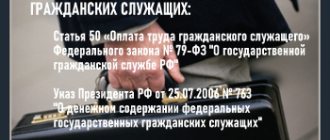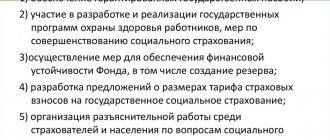What documents does Order No. 71 cover?
The new rules of office work for authorities on a unified legal basis regulate:
- rules for creating documents;
- technologies for working with them;
- organization of current storage of documents and preparation for transfer to the archives of a government body or local government body.
The requirements of Order No. 71 apply to accounting, personnel and other special documentation in terms of:
- general principles of working with documents;
- preparing documents for transfer to archival storage.
In particular, Order No. 71 determines:
- procedure for documenting management activities;
- document management process;
- document management procedure in the electronic document management system;
- procedure for monitoring the execution of documents (instructions).
The Rules also detail the processes of preparing documents for transfer to storage in the archives of a government agency and separating for destruction of documents with past storage periods.
How and by whom the sphere of office work is regulated within the Russian Federation
State regulation of office work is ensured by the Federal Archival Agency,
which provides intersectoral organizational and methodological guidance and control over the organization of documents in the office work
of federal government bodies
, coordinates the development of the state office system and unified documentation systems.
Committee of the Russian Federation for Standardization, Metrology and Certification
(Gosstandart of Russia)
carries out state management of standardization in the Russian Federation
, including work on the unification and standardization of documents and documentation systems, development, implementation and maintenance of all-Russian classifiers of technical, economic and social information.
Government of the Russian Federation, federal executive authorities
are responsible for organizing documentation support in
executive
, developing relevant regulatory legal acts.
What Order No. 71 does not apply to
The new Rules for office work in government bodies do not apply to:
- organizing work with documents containing state secrets;
- conducting paperwork on appeals from citizens/organizations (this issue is regulated by Law No. 59-FZ dated 05/02/2006 “On the procedure for considering appeals from citizens of the Russian Federation”);
- organizing work with requests from legal entities and individuals to provide information about the activities of this body (this issue is regulated by Law No. 8-FZ dated 02/09/2009 “On ensuring access to information about the activities of state bodies and local self-government bodies”);
- organization of work with requests from citizens and organizations for the provision of state/municipal services (this issue is the Law of July 27, 2010 No. 210-FZ “On the organization of the provision of state and municipal services”).
History and practice of archiving and record keeping
UDC 930.25+004
The widespread introduction of information technologies and electronic document management into management processes, the emergence of a significant array of documents created only in electronic form, required appropriate legal regulation of this area of activity, the need for which was pointed out by representatives of the professional community - document scientists and archivists[1] . One of the expected normative documents that continued the tradition of normative regulation of office work in the 1990s [2] was the Rules for office work in state bodies and local governments (hereinafter referred to as the Rules). They are registered by the Russian Ministry of Justice and officially published[3]. The previously existing Rules of Office Work in Federal Executive Bodies of 2009 were declared invalid by Decree of the Government of the Russian Federation of February 1, 2020 No. 71[4]. In this article we will show those changes in record keeping that are caused by the new regulatory document.
Let us recall that the Rules were developed in accordance with the Federal Law of July 27, 2006 No. 149-FZ “On information, information technologies and information protection”, according to which “in state bodies and local governments, documentation of information is carried out in accordance with the rules of office work , established by the authorized federal executive body in the field of archival affairs and record keeping”[5]. Such an authorized body is currently Rosarkhiv. This provision was introduced into the law on information in 2020 in connection with the expansion of the powers of Rosarkhiv and the approval of the new Regulations on the Federal Archival Agency[6].
It's not just the name that has changed in the Rules; their scope of action has expanded significantly. Now the Rules are required to be applied by federal government bodies, other federal government bodies, government bodies and other government bodies of the constituent entities of the Russian Federation, local government bodies (clause 1.3). But the circle of organizations is not limited in any way, i.e. Other organizations, including non-governmental ones, can also use the rules.
The specifics of the application of the Rules are set out in Section 1 “General Provisions”, where, in particular, clause 1.8 establishes that in state bodies and local governments, instructions for office work are developed, approved either by a federal government body or another federal government body after agreement with the authorized a federal executive body in the field of archival affairs and record keeping, or a state authority and other state body of a constituent entity of the Russian Federation, a local government body after agreement with the authorized executive authority of a constituent entity of the Russian Federation in the field of archival affairs or a state (municipal) archive in accordance with the information provided him with powers. The established procedure is a kind of form of control over office work on the part of archival authorities.
In the section “General Provisions” (clause 1.9) it is also noted that “in the executive authorities of the constituent entities of the Russian Federation, local governments using a unified electronic document management system (hereinafter referred to as EDMS), an instruction for office work may be used, establishing a unified procedure for office work in executive authorities of the constituent entities of the Russian Federation and/or local government bodies.” This section also specifies the specifics of applying the Rules to individual sets (systems) of documentation: accounting, personnel, etc.; to documents containing information constituting state secrets; citizens' appeals; requests from citizens for information about the activities of a state body or local government body; requests (applications) for the provision of state (municipal) services. It is indicated that the provisions of the Rules apply to the named complexes (systems) of documentation in terms of the general principles of working with documents, as well as the preparation of documents for transfer to archival storage; The specifics of record keeping are regulated by relevant legislation[7] and other regulatory legal acts.
In addition, this section also contains provisions of an organizational nature: on responsibility for organizing, maintaining and improving office work; on the role of the office work service and on the organization of office work in structural divisions and territorial bodies of state bodies (if any). It is stipulated that the office management service operates on the basis of a regulation on it, approved by the head of the state body, local government body and defining the name of the office management service, its structure, tasks and functions, and the job responsibilities of the service specialists are established by job regulations (job descriptions).
The main content of the Rules is set out in sections in accordance with the stages of the document life cycle: creation of documents (Section II “Documentation of management activities”); document flow (sections III “Organization of document flow”, IV “Document management in the electronic document flow system”, V “Control of the execution of documents (instructions)”); organization of current (operational) storage of documents (sections VI “Documentary fund of a state body, local government body”, VII “Preparation of documents for transfer for storage to the archive of a state body; allocation for destruction of documents with expired storage periods”).
Let's consider the most important provisions of the Rules. Thus, in the section devoted to documentation, it is established that sample document forms, the composition of details and the rules for their execution must comply with the provisions of the national standard GOST R 7.0.97–2016[8]. It should be noted that one often hears about the recommendatory nature of this standard and national standards in general. However, it is not. Federal Law No. 162-FZ of June 29, 2020 “On Standardization in the Russian Federation”[9] prescribes the procedure for applying national standards. It follows from it that, firstly, national standards are documents applied voluntarily, secondly, regulatory legal acts may contain references to officially published national standards, thirdly, in the case of a public statement (for example, when designating a national standard in operational or other documentation), the use of the national standard is mandatory. This means that the reference to GOST R 7.0.97–2016 in the Rules section transfers this document, which has the status of voluntary application, into the category of mandatory application.
Based on the general principles of documentation and the requirements for the creation of documents, the Rules distinguish documents on paper; electronic documents (i.e. created in digital form); electronic copies of documents (i.e. obtained as a result of digitization, for example scanning documents on paper). According to the Rules, “documents of a state body, local government body can be created and stored exclusively in the form of electronic documents, regardless of their storage period, if their storage in the form of electronic documents is provided for by legislative acts of the Russian Federation or regulatory legal acts of the authorized federal executive body in the field archiving and office work” (clause 2.4).
It has also been established that in the EDMS of a state body, local government body, in which electronic documents are created and included, when they are visualized or reproduced on paper, details must also be reproduced in accordance with GOST R 7.0.97–2016. With regard to EDMS, the Rules contain the following provision: “EDS used in federal executive authorities must comply with the functional requirements established by the authorized federal executive body in the field of archival affairs and record keeping” (clause 2.3). This document - a draft of Standard functional requirements for electronic document management systems and systems for storing electronic documents in the archives of government agencies - was developed by Rosarkhiv[10].
The provisions of the Rules devoted to the procedure for approving documents note that the approval of draft documents can be issued by a visa with the handwritten signature of the person approving the document, or carried out in electronic form with subsequent printing (if necessary) of the approval sheet.
Due to the fact that during the registration of the Rules in the Ministry of Justice of Russia, the section on the preparation of certain types of documents was excluded, the final provision of Section II “Documentation of management activities” states: “Features of the preparation of certain types of documents are established by the instructions for office work of a state body, local government body "(clause 2.13).
Section III “Organization of document flow” defines its main stages, during which the reception and primary processing of incoming documents are ensured; their preliminary consideration; registration of incoming, outgoing and internal documents; review of documents by management; bringing documents to executors; preparation of draft documents; their approval and signing; determining the storage location of the document (copy of the document) and inclusion of the document (copy of the document) in the file; processing and sending outgoing documents.
The life cycle of incoming, outgoing, and internal documents is presented here sequentially; features of processing documents received and sent by various types of communication: postal, courier, courier, other types of special communication, fax, telegraph, telephone, via e-mail, EDMS, interdepartmental electronic document management system (MEDO), through the website of a state body, local government body , through the federal state information system “Unified portal of state and municipal services (functions)” and/or the regional portal of state and municipal services. The principles and features of document registration, inclusion in the EDMS, the procedure for conducting preliminary review of documents, their consideration by management, the formation of instructions for the execution of documents, and the delivery of documents to executors are also considered.
The section formulates the basic principles of accounting for document flow volumes. The number of documents is recorded according to the EDMS and other registration and accounting forms. A copy of a document (original or copy, if the copy is the only copy of the document) is taken as a unit of accounting. Copies created for distribution or internal use are counted separately if necessary. When accounting for outgoing documents, the cover letter and the documents attached to it are accepted as one document. Data on the number of documents is summarized (with a cumulative total), analyzed and presented to the head of the state body, local government body or other person authorized by him in the form of certificates (summaries, reports) of a statistical and analytical nature with established frequency (month, quarter, half-year, year) .
Section IV “Document management in the electronic document management system” is the only one in the Rules that deals specifically with the organization of work with documents in the EDMS. It establishes lists of mandatory information included in the EDMS on incoming, outgoing and internal documents and citizens’ appeals. It is noted that along with the established information, other information may be included. In conditions where in state bodies and local governments, EDMS sometimes differ not only in the developer company, the platform on which the system is implemented, but also in functionality, the establishment of a single set of metadata requisites[11] is important for organizing interdepartmental interaction.
Section V of the Rules is devoted to control over the execution of documents (instructions). The relevant provisions were returned to the regulatory field after a fairly long period during which they were not actually regulated (in the Model Instructions for Office Work in Federal Executive Bodies of 2005, the control provisions were extremely general, and in the Rules of Office Work in Federal Executive Bodies of 2009 were completely absent).
The Rules note that control over the deadlines for the execution of documents (instructions) is carried out by the office management service of a state body, local government body or other structural unit that may be entrusted with this function. The main stages of monitoring the execution of documents (instructions), conducting analytical work based on the results of monitoring execution, etc. have been identified; There are a number of new provisions regarding the calculation of deadlines for the execution of documents, which should be noted by office management specialists. These provisions are brought into compliance with the norms of the Civil Code of the Russian Federation (Civil Code of the Russian Federation). The point is that before the approval of the Rules, the deadlines for the execution of documents (instructions) were calculated from the date of registration of the document (instruction). This norm was laid down at one time in the Unified State Data Sheet, in the State Budgetary Educational Institution, and in other regulatory documents on office work. However, according to the Civil Code of the Russian Federation (Part 1 of Article 191), “the course of a period determined by a period of time begins the next day after the calendar date or the occurrence of an event that determines its beginning.” For this reason, the Rules (clause 5.6) stipulate that execution deadlines are calculated in calendar days from the date following the date of registration of the document. But there may be exceptions. For example, Federal Law No. 59-FZ of May 2, 2006 “On the procedure for considering appeals from citizens of the Russian Federation” establishes that the time frame for considering and forwarding citizens’ appeals is calculated from the date of registration of the written appeal[12]. Another provision concerns situations when the last day of the deadline for executing a document (order) falls on a non-working day. According to the Civil Code of the Russian Federation (Part 1, Article 193), in this case, “the day of expiration of the period is considered to be the next working day following it.” Now this is established in the Rules (clause 5.7).
Sections VI “Documentary fund of a state body, local government body” and VII “Preparation of documents for transfer to the archives of a state body; allocation for destruction of documents with expired storage periods" contain provisions defining the procedure for the formation of a documentary fund (a set of documents generated in the activities of an organization [13]), selection of documents and their preparation for transfer to the archive, as well as allocation for destruction of files for previous years, whose shelf life has expired.
The rules establish that state bodies of the Russian Federation develop and approve lists of documents generated in the process of their activities, as well as in the process of activities of organizations subordinate to them, indicating their storage periods in agreement with the authorized federal executive body in the field of archival affairs and record keeping. State bodies of the Russian Federation and state bodies of constituent entities of the Russian Federation that have subordinate organizations have the right to develop and approve, in agreement with the authorized federal executive body in the field of archival affairs and record keeping or with the corresponding authorized executive body of the constituent entity of the Russian Federation in the field of archival affairs, standard and exemplary nomenclature of cases[14] for subordinate organizations.
To ensure the procedure for the formation and recording of cases in office work, a state body or local government body develops and approves a nomenclature of cases. The Rules devote significant space to compiling a nomenclature of cases, their headings, determining the storage periods for documents, coordinating and approving the nomenclature and other issues related to the formation of a documentary fund. They are basically already regulated by the Rules for organizing the storage, acquisition, recording and use of documents of the Archival Fund of the Russian Federation and other archival documents in government bodies, local governments and organizations (hereinafter referred to as the 2020 Rules)[15] and supported by the approved order of the Federal Archive from December 23, 2009 No. 76 Methodological recommendations for the development of instructions for office work in federal executive authorities[16].
Since state bodies and local government bodies are the sources of acquisition of state and municipal archives, the Rules provide for the procedure for coordinating and approving the nomenclature of files: signed by the head of the records management service, endorsed by the head of the archive (the person responsible for the archive), approved by the head of the state body, local government body after approval with the central expert commission (expert commission) of a state body, local government body and once every five years with the expert verification commission (EPC) of the federal state archive, EPC of the authorized executive body of the constituent entity of the Russian Federation in the field of archival affairs or the state (municipal) archive in accordance with the powers granted to him[17].
The rules also establish the number of copies of the nomenclature of cases (4 copies) and their distribution: the first copy is placed in a separate file and included in the nomenclature of cases in the section of the office work service as a document of permanent storage; the second is transferred to the archives of a state body, local government body; the third - to the state (municipal) archive, the source of acquisition of which is a state body, local government body; the fourth (copy of the approved nomenclature of cases) is a working copy of the office management service. The list of cases is sent to structural units by the office management service in electronic form or in the form of copies of the relevant sections on paper.
A new provision has been introduced, according to which, at the end of the year, data on changes and additions made to sections of the nomenclature of cases of structural divisions, together with final records on the categories and number of cases opened during the year, are transferred to the records management service. The latter, based on the data received, prepares an addition to the nomenclature of cases, in which the headings of cases that are not provided for in its approved copy are indicated sequentially in accordance with the sections. The addition is signed by the head of the office management service and, together with the final record of the categories and number of cases opened during the year, is attached to the approved copy of the nomenclature of cases.
With regard to the storage of electronic documents, along with the provisions of the Rules for Office Work in Federal Executive Bodies of 2009 (formation of electronic documents into files in accordance with the nomenclature of cases, inclusion in the nomenclature of cases of notes on conducting the case in electronic form, etc.), the new Rules have been supplemented the following standards: electronic documents, regardless of their volume, are included in one electronic file without division into volumes (clause 6.25); if the case documents are presented on paper and in the form of electronic documents (the so-called hybrid case), the paper documents must be digitized and included in the electronic file; in a case maintained on paper, only documents created (received) on paper are included (clause 6.26). In the nomenclature of files, an electronic file and a paper file are reflected as two volumes with one title, index and storage period.
The last section of the Rules, which determines the procedure for preparing cases for transfer to the archives of a state body, local government body and the transfer of documents to the archive, corresponds to the standards established by the 2015 Rules.
State bodies and local government bodies will have to, based on the Rules, develop (rework) instructions for office work. Since the Methodological Recommendations for the Development of Instructions for Office Work of 2009 were focused on the expired Rules of Office Work in Federal Executive Bodies of 2009, Rosarkhiv decided to prepare similar recommendations for the new Rules.
Thus, the implementation of a new regulatory document will not only be an important step in regulating office processes, but will also help improve the quality of the Archival Fund of the Russian Federation.
[1] Larin M.V. Normative and methodological support for document management in the Russian Federation: problems and prospects // Documentation in the information society: normative and methodological support for document management: report. and message at the XXI International scientific-practical conf. 18–19 Nov. 2014 M., 2014. pp. 25–34; Surovtseva N.G. Development of standard functional requirements for electronic document management systems and systems for storing electronic documents in the archives of government agencies // Archival business at the present stage: problems, practice, innovations: materials of the international. scientific-practical conf. Almaty, 12–13 Oct. 2017 Almaty, 2020. pp. 8–10; It's her. Electronic document: to the problem of identification // Vestn. RSUH. Ser. “Documentation and archival science. Computer science. Information protection and information security.” 2020. No. 3 (9). pp. 18–28; Yankovaya V.F. Regulatory regulation of the conceptual apparatus in the field of electronic document management // Domestic archives. 2020. No. 2. P. 23–30; It's her. New regulatory document - Sample instructions for office work in government organizations // Office work and document flow at the enterprise. 2020. No. 10. P. 22–35; It's her. What will change in the regulatory framework of office work and archiving by the end of 2018 // Directory of the secretary and office manager. 2020. No. 10. P. 12–17; Chukovenkov A.Yu., Yankovaya V.F. Rules of office work in the executive authorities of the constituent entities of the Russian Federation: development and application // Domestic archives. 2020. No. 4. P. 21–30; Yankovaya V.F., Meshcherina T.A. Sample instructions for office work in government organizations: purpose and content // Ibid. 2020. No. 6. pp. 13–18.
[2] This means: Standard instructions for office work in ministries and departments of the Russian Federation. Approved Roscomarchive 07/06/1992 (registered with the Ministry of Justice of Russia 08/05/1993 No. 321) // Russian news. 1993. No. 159; Order of Rosarkhiv dated November 27, 2000 No. 68 “On approval of the Standard Instructions for Office Work in Federal Executive Bodies” (registered with the Ministry of Justice of Russia on December 26, 2000 No. 2508); Order of the Ministry of Culture of Russia dated November 8, 2005 No. 536 “On the Standard Instructions for Office Work in Federal Executive Bodies” (registered with the Ministry of Justice of Russia on January 27, 2006 No. 7418).
[3] Order of Rosarkhiv dated May 22, 2019 No. 71 “On approval of the Rules for office work in state bodies and local governments” (registered with the Ministry of Justice of Russia on December 27, 2019 No. 57023). URL: https://www.pravo.gov.ru
[4] Ibid.
[5] See: Collection. legislation of the Russian Federation. 2006. No. 31. Art. 3448 (as amended on June 18, 2017). (Art. 11. P. 2.).
[6] In accordance with the Regulations on the Federal Archival Agency, approved by Decree of the President of the Russian Federation dated June 22, 2016 No. 293, Rosarkhiv is “a federal executive body that carries out the functions of developing and implementing state policy and legal regulation in the field of archival affairs and office work, as well as control, provision of public services and management of federal property in this area.” (Ibid. 2020. No. 26. Art. 4034; 2020. No. 52. Art. 8239.) The development and approval of the Rules for office work in state bodies and local governments is provided for in subparagraph 3 of paragraph 6 of the Regulations on Rosarkhive.
[7] Federal laws of May 2, 2006 No. 59-FZ “On the procedure for considering appeals from citizens of the Russian Federation” (Ibid. 2006. No. 19. Art. 2060; 2020. No. 53. Art. 8454); dated 02/09/2009 No. 8-FZ “On ensuring access to information about the activities of state bodies and local governments” (Ibid. 2009. No. 7. Art. 776; 2020. No. 1. Art. 7); dated July 27, 2010 No. 210-FZ “On the organization of the provision of state and municipal services.” (Ibid. 2010. No. 31. Art. 4179; 2020. No. 14. Art. 1461); and etc.
[8] GOST R 7.0.97–2016 “System of standards for information, library and publishing. Organizational and administrative documentation. Requirements for the preparation of documents" (as amended No. 1). M., 2018. Section. 6.
[9] See: Collection. legislation of the Russian Federation. 2020. No. 27. Art. 3953; 2020. No. 27. Art. 4229. (Art. 26, 27.)
[10] URL: https://archives.ru/documents/projects.shtml
[11] The requisite part of the metadata is the metadata that is recorded in the electronic document card. Document metadata (metadata for records) is “structured or semi-structured information that allows you to create, manage and use documents at different times and in different areas of activity” // GOST R ISO 15489-1-2019 “System of standards for information, library and publishing business. Information and documentation. Document management." M., 2020. Part 1: Concepts and principles. P. 3.12.
[12] See: Collection. legislation of the Russian Federation. 2006. No. 19. Art. 2060; 2020. No. 53. Art. 8454. (Art. 12. Item 1.)
[13] GOST R 7.0.8–2013 “System of standards for information, library and publishing. Record keeping and archiving. Terms and Definitions". M., 2014. P. 88.
[14] The standard nomenclature of cases establishes the composition of cases opened in organizations of a certain type and is a normative document; the approximate nomenclature of cases establishes the approximate composition of cases opened in the same type of organizations to which it applies, and is a recommendation document.
[15] URL: https://www.pravo.gov.ru
[16] URL: https://www.consultant.ru/cons/cgi/online.cgi?req=doc&base=LAW&n=96081&fl…
[17] Order of Rosarkhiv dated June 13, 2018 No. 62 “On approval of the Model Regulations on the Expert Review Commission of the Federal State Archives (registered with the Ministry of Justice of Russia on June 15, 2018 No. 51357); Order of Rosarkhiv dated June 13, 2018 No. 63 “On approval of the Model Regulations on the expert verification commission of the authorized executive body of a constituent entity of the Russian Federation in the field of archival affairs” (registered with the Ministry of Justice of Russia on August 6, 2018 No. 51794). URL: https://www.pravo.gov.ru
Bibliography
- Larin M.V. Normative and methodological support for document management in the Russian Federation: problems and prospects // Documentation in the information society: normative and methodological support for document management: report. and message at the XXI International scientific-practical conf. 18–19 Nov. 2014. M., 2014. pp. 25–34.
- Surovtseva N.G. Development of standard functional requirements for electronic document management systems and systems for storing electronic documents in the archives of government agencies // Archival business at the present stage: problems, practice, innovations: materials of the international. scientific-practical conf. Almaty, 12–13 Oct. 2020. Almaty, 2020. pp. 8–10.
- Surovtseva N.G. Electronic document: to the problem of identification // Vestn. RSUH. Ser. “Documentation and archival science. Computer science. Information protection and information security.” 2020. No. 3 (9). pp. 18–28.
- Chukovenkov A.Yu., Yankovaya V.F. Rules of office work in the executive authorities of the constituent entities of the Russian Federation: development and application // Domestic archives. 2020. No. 4. pp. 21–30.
- Yankovaya V.F. New regulatory document - Sample instructions for office work in government organizations // Office work and document flow at the enterprise. 2020. No. 10. pp. 22–35.
- Yankovaya V.F. Regulatory regulation of the conceptual apparatus in the field of electronic document management // Domestic archives. 2018. No. 2. pp. 23–30.
- Yankovaya V.F. What will change in the regulatory framework of office work and archiving by the end of 2018 // Directory of the secretary and office manager. 2020. No. 10. pp. 12–17.
- Yankovaya V.F., Meshcherina T.A. Approximate instructions for office work in government organizations: purpose and content // Domestic archives. 2020. No. 6. pp. 13–18.





